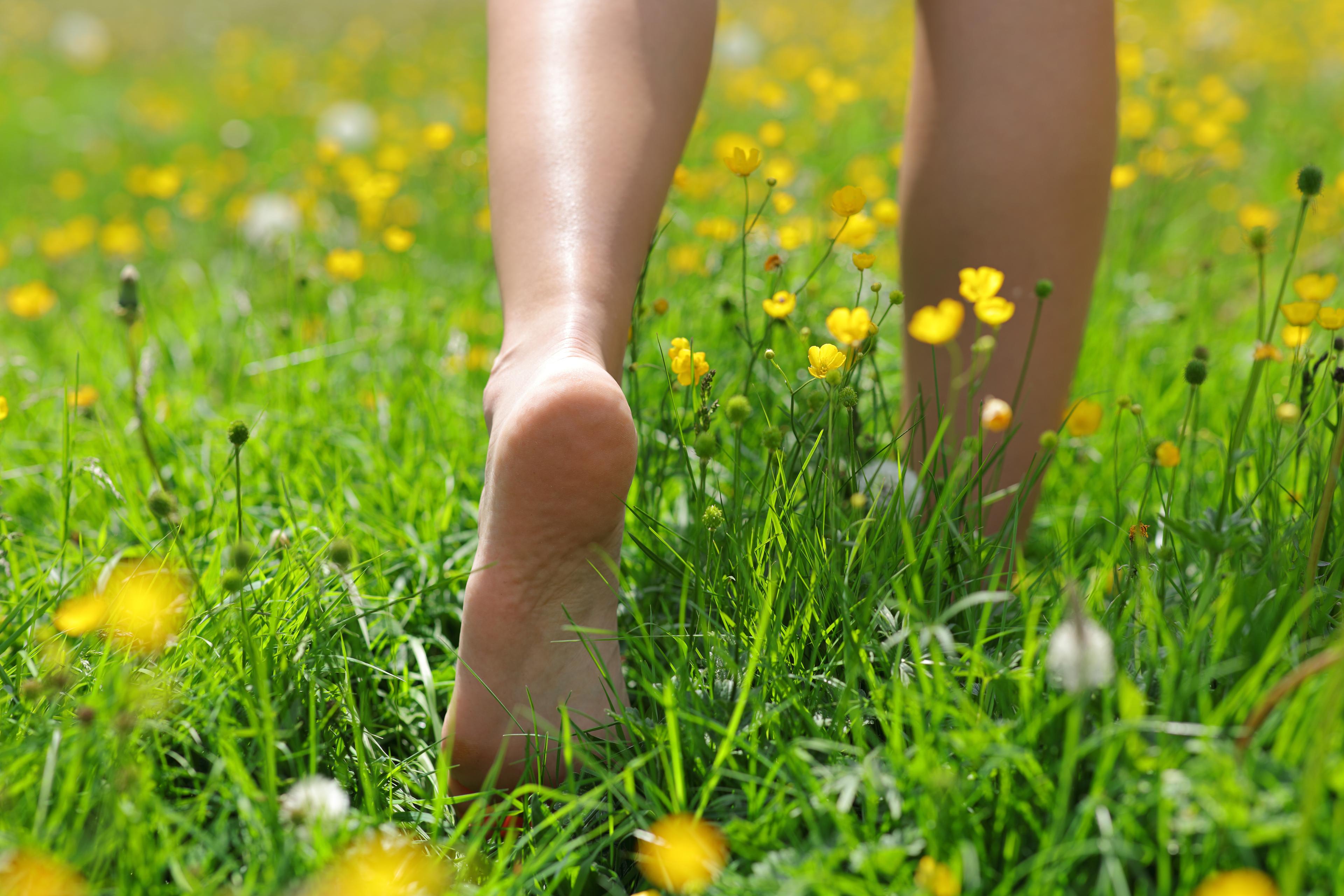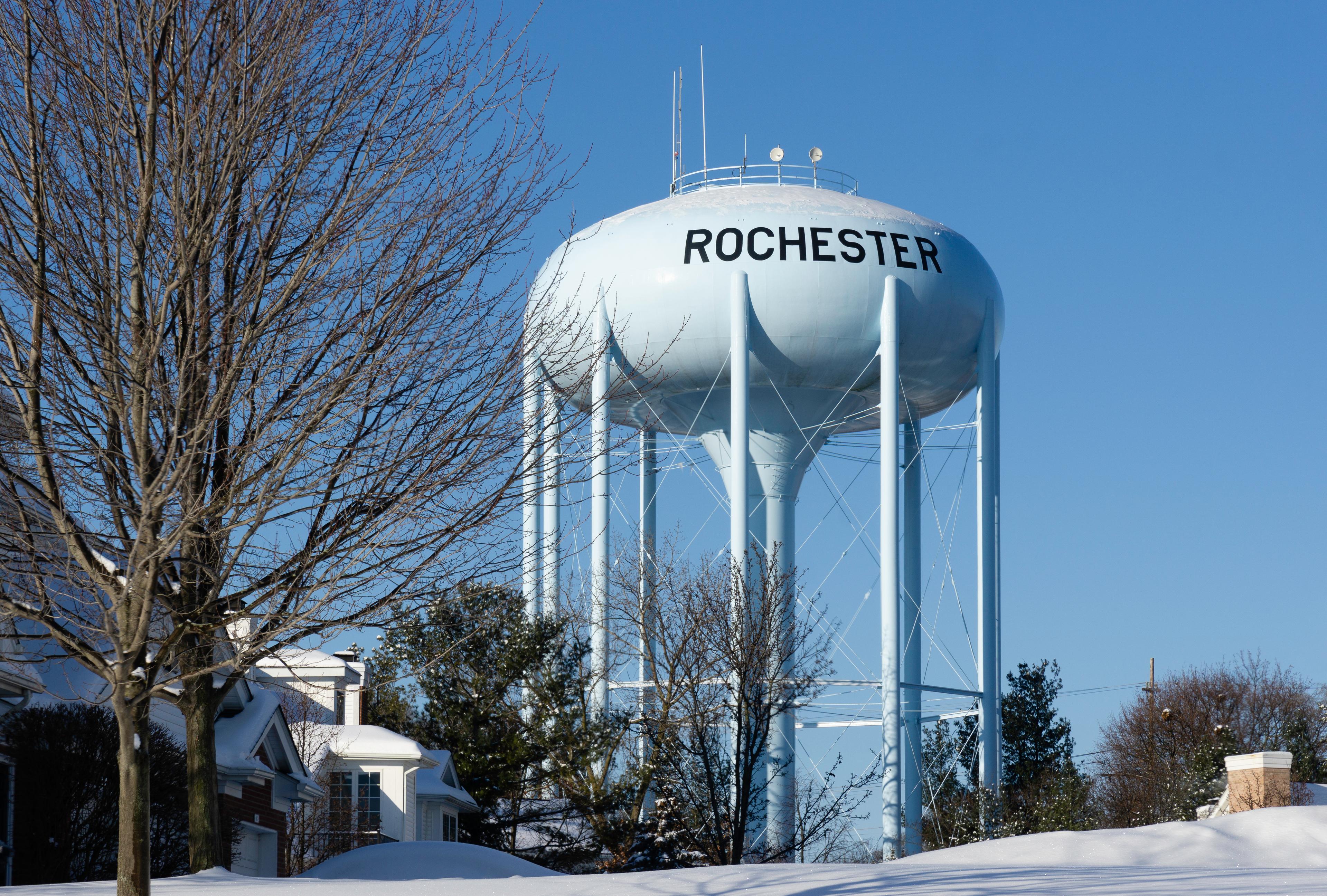Does Grounding Have Health Benefits?
A Healthier Michigan
| 3 min read

If you’ve ever walked barefoot in your backyard or taken a dip in a lake or ocean, congratulations. By doing so, you’ve taken part in an activity called grounding - or “earthing” - which has seen a resurgence of interest primarily because information about it is being shared on social media.
TikTok users alone have shared thousands of videos with the hashtag #earthing in recent years. How-to videos on grounding and its purported benefits are widely available. How do you know if grounding is right for you?
What is grounding?
In its most basic sense, grounding is simply a way to allow your body to have deliberate, direct physical contact with the Earth. This can be done in a variety of ways, including:
- Walking barefoot outside your home, in a park or on a trail
- Laying on the grass or the bare ground
- Laying on the sand at the beach
- Wading or swimming in an inland lake or in one of our Great Lakes
- Wading or swimming in an ocean
- Sitting outside on the ground
- Sitting or lying on mats or sheets laid directly on the ground
Why grounding is getting attention
If some of these seem like things you did as a kid, you’re not far off from the point. Practitioners see grounding a back-to-basics healing technique for the mind and body that emphasizes forging a stronger connection to the Earth by physical contact. Advocates believe this Earth-body connection is lost as people get older, or as society becomes more modern.
Some people believe electrical charges from the ground can have a positive effect on the body’s health.
Other health claims include:
- Reducing chronic pain
- Improving sleep
- Lowering blood pressure
- Reducing fatigue
- Decreasing depression
However, there isn't much high quality research that can back these claims, according to the Cleveland Clinic. Much of the available research have few participants and are funded by "earthing" companies.
Possible health benefits of grounding
While research specifically on grounding is limited, spending time outdoors and being mindful do have health benefits.
Grounding can connect us with our own bodies, according to the Cleveland Clinic, but that's because we are focusing on the moment. Using your senses to notice the touch of grass, scent of trees and flowers and feeling of a cool breeze help get us out of stress and anxiety and back to the present moment. Engaging in a mindfulness practice can lower blood pressure, improve focus, decrease emotional reactivity and improve happiness
Don't expect a barefoot walk to be a magical remedy for illness, but being nature is good for you. An awe walk, for example, is associated with reduced stress, and exercising out of doors is linked to lower levels of depression. Walking in nature can improve cardiovascular health, according to the Cleveland Clinic.
Connecting with nature through practices such as grounding is healthy, but it's not a cure for diseases or chronic health conditions. Stress management and regular exercise are part of an overall healthy lifestyle, which includes:
- Eating a nutritious diet of fresh fruits and vegetables, whole grains and lean meat.
- Staying hydrated.
- Getting enough sleep.
If you’re interested in grounding, slip off your shoes and head outside to enjoy the outdoors, or grab a towel and make a beeline for your nearest beach. Don't forget the sunscreen.
Photo credit: Getty Images
Related:





